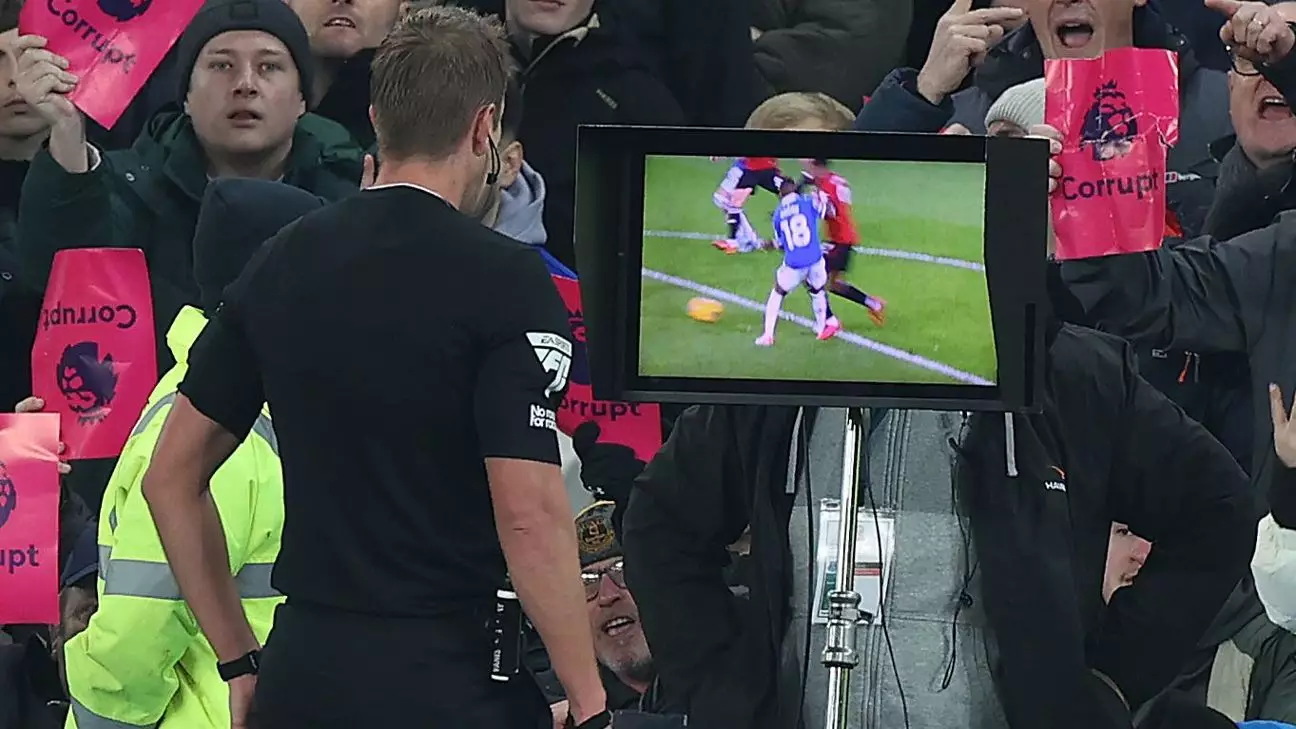Wolverhampton Wanderers’ attempt to have VAR scrapped from the Premier League starting the 2024/25 season was met with little support from other clubs in the league. In a vote of 19-1, clubs opted to retain the video assistant technology despite ongoing concerns about its implementation. Wolves believed that the slight increase in accuracy brought by VAR did not justify the impact it had on the flow and spirit of the game. However, with only one club supporting their motion, it was clear that the majority were in favor of keeping VAR in place.
Improvement of VAR Process
While many clubs shared Wolves’ concerns about the issues surrounding VAR, they also acknowledged its importance as a safety net against poor on-field decisions. Instead of scrapping VAR altogether, clubs agreed on six key action points to improve the system. These included maintaining a high threshold for VAR intervention, reducing delays in the game, improving fan experience, enhancing VAR training for officials, increasing transparency and communication, and launching a VAR communication campaign for fans and stakeholders.
Following the defeat of their motion, Wolverhampton Wanderers released a statement expressing their disappointment but also their acceptance of the decision made by the other clubs. They emphasized their commitment to working with the Premier League and officials to ensure that VAR continues to evolve and better serve the interests of football. While Wolves still believed that the game would be better off without VAR, they welcomed the improvements planned for the system to address delays, consistency, and fan experience. They recognized the importance of maintaining the integrity of the game while enhancing the matchday experience for supporters.
Despite the efforts to improve VAR, challenges and controversies persist. With 38 VAR errors reported in the 2022/23 season, there is still room for improvement in the accuracy and effectiveness of the technology. The introduction of semi-automated offside technology (SAOT) was approved by clubs, aiming to reduce delays and make offside decisions more efficient. However, the human element in decision-making remains a point of contention, with concerns about marginal calls and the lack of tolerance levels in SAOT compared to the previous Hawk-Eye software.
The future of VAR in the Premier League remains uncertain, with ongoing debates about its impact on the game. While efforts are being made to address the shortcomings of the system, including improved training for officials and enhanced fan communication, the overall sentiment towards VAR is mixed. As the technology continues to evolve and adapt, it will be crucial for clubs, officials, and stakeholders to work together to ensure that VAR enhances the game rather than detracts from it. As the Premier League navigates the challenges of implementing VAR, the focus remains on striking a balance between accuracy, efficiency, and maintaining the integrity of football.

Leave a Reply